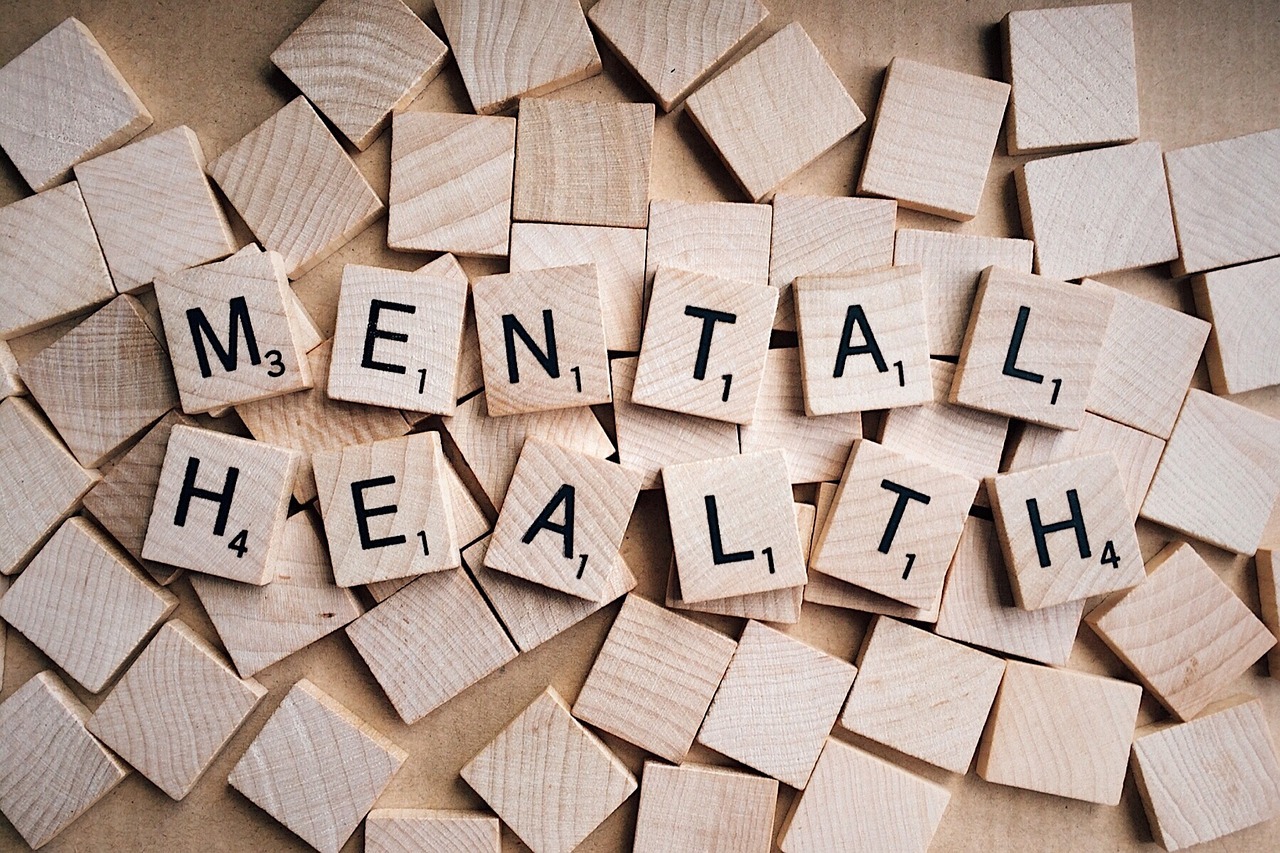Between juggling calendars, tackling tough talks, and doing your best to keep life steady for your little one, co-parenting can feel like a high-wire act. But hidden in the chaos is a powerful opportunity—a chance to become a united front for your child’s mental and emotional well-being. When parenting happens across two homes, play can become your secret superpower.
In this guide, we’ll explore playful, age-appropriate ways to talk about mental health with your child—helping them name big emotions, feel truly seen, and grow up feeling secure in both homes.
Ready to turn connection into a daily practice? Let’s get started.
Why Co-Parenting Sets the Stage for Mental Health?
Co-parenting is like a dance—you and your ex-partner move together, not for each other, but for your child. It’s about building trust, keeping communication open, and putting your kid’s needs first, even when old wounds or new frustrations creep in. When you nail this teamwork, you create a stable, predictable world that’s like a warm hug for your child’s heart.
Kids are tough, no doubt, but a rocky co-parenting dynamic can shake even the strongest little spirits. Research shows that kids thrive when parents work together peacefully, but ongoing conflict can spark anxiety, depression, or trouble with friends. The first couple of years after a split can be especially tough—younger kids might struggle with two homes, school-agers may blame themselves, and teens might act out with risky behaviors. The good news? You can soften these challenges by keeping things consistent and supportive across both homes. Think of it as building a bridge of love and stability that your child can cross with confidence.
Play: Your Secret Weapon for Connection
Kids don’t always have the words to say, “I’m stressed about this divorce stuff.” That’s where play comes in—it’s their natural language! Whether they’re building a Lego castle or acting out a story with puppets, play lets kids express big emotions in a safe, fun way. It’s like a window into their world, helping you spot what’s on their mind and giving them a sense of control when life feels wobbly.
Play isn’t just fun—it’s powerful. It helps kids process feelings, build resilience, and practice social skills like sharing or compromising.
Plus, when you join in, it strengthens your bond and reduces stress for both of you. Imagine the giggles during a silly game of emotion charades or the quiet moments when your child opens up while drawing a “feelings monster.” These are the moments that build trust and emotional security.
Age-Specific Playful Strategies to Spark Conversations
Every kid is unique, and so is the way they process emotions. Here’s how to use play to connect with your child, tailored to their developmental stage, with activities that feel natural and engaging.
Toddlers & Preschoolers (Ages 2-5): Exploring Big Feelings Through Fun
Little ones live in a world of senses and simple words. They might not say, “I’m sad,” but they’ll show it through a grumpy face or a clingy hug. Sensory, interactive play is your go-to here—think messy art projects or silly puppet shows. These activities let them explore emotions without needing big words.
Playful Activities for Toddlers & Preschoolers:
- Feelings Bingo: Make a bingo board with smiley, frowny, or angry face stickers. Call out an emotion, and let your kiddo mark it. It’s a fun way to name feelings and grow their emotional vocab.
- Puppet Playtime: Grab some puppets and act out a story where one puppet feels sad or mad. Ask your child what the puppet might do to feel better—it’s a gentle way to talk about emotions.
- Food Faces: At snack time, use fruit slices or crackers to make happy, sad, or silly faces on a plate. Chat about what makes them feel those ways while you munch.
- Mirror Magic: Stand in front of a mirror and make faces together—happy, grumpy, surprised. Name the feelings as you go, and watch your child light up as they mimic you.
These activities are like planting seeds—your toddler starts to understand their emotions in a safe, playful way, setting the stage for deeper talks later.
Early School-Aged Kids (Ages 6-9): Diving Into Complex Emotions
Kids this age are starting to think more deeply and can Garden their own “feeling monsters.” They’re ready for imaginative, story-based play that lets them explore complex emotions and build coping skills.
Playful Activities for Early School-Aged Kids:
- Emotion Dice: Create a dice with faces showing different emotions. Roll it, and ask your child to share a time they felt that way. It sparks storytelling and connection.
- Story Circle: Take turns adding to a story, tossing in “what if” moments like, “What if the character felt scared?” It encourages kids to talk about feelings through the story.
- Feelings Collage: Cut out magazine pictures of people showing emotions. Let your child create a collage and talk about why they chose each image.
- Puppet Problems: Use a stuffed animal with a “problem” (like a lost toy). Your child can help solve it through play, practicing problem-solving skills.
These activities help kids name and process emotions while having fun, making tough topics feel approachable.
Tweens & Pre-Teens (Ages 10-12): Building Resilience and Self-Awareness
Tweens are starting to think abstractly and crave independence. They need activities that encourage reflection and empathy while still feeling playful and engaging.
Playful Activities for Tweens & Pre-Teens:
- Mood Meter: Use a chart with high/low energy and pleasant/unpleasant feelings. Have your tween mark their mood and talk about what’s going on.
- Would You Rather?: Ask fun or thought-provoking questions like, “Would you rather feel angry or sad?” Discuss their choices to dig into emotions.
- Guided Journaling: Offer prompts like, “What’s one thing that made you smile today?” or “What’s a tough moment you got through?” It encourages self-reflection.
- Role-Play Scenarios: Act out situations like a friend being upset or a family argument. It helps them practice empathy and problem-solving in a safe space.
These games foster deeper conversations, helping tweens build resilience and feel understood.
Co-Parenting Like a Pro: Communication Tips for a United Front
Great co-parenting is like running a business with your ex—focus on the mission (your child’s happiness) and keep personal drama out of it. Use “I” statements like, “I feel we could coordinate better on homework,” instead of “You never help.” Stay calm, listen actively, and restate what you heard to avoid misunderstandings. Our 2houses co-parenting apps can keep things organized with shared calendars and message logs, reducing conflict and keeping your child out of the middle.
Avoid pitfalls like venting to your child or badmouthing the other parent—it’s like throwing emotional weight on their little shoulders. Instead, create a safe space where they don’t have to choose sides. If they’re not ready to talk, don’t push—offer a story of your own to show you get it, and let them open up when they’re ready.
When to Call in the Pros
Keep an eye out for signs your child might need extra help: persistent sadness, regression (like bedwetting), withdrawal, or sudden changes in eating or school performance. These aren’t just “phases”—they’re cries for help. A child therapist can be a neutral, safe space for your kid to process feelings without worrying about pleasing you or their other parent. For you, co-parenting counseling can improve communication and set boundaries, while parenting coordination is better for high-conflict situations.
Resources to Light the Way
Books and apps can be lifesavers for kids and parents alike. Here are some of our favorites:
Recommended Books for Children on Emotions & Mental Health
| Age Group | Book Title | Author | Primary Themes |
| Toddlers & Preschoolers (2-5) | A Little Spot of Feelings | Diane Alber | Introduces various emotions and helps children identify them. |
| Grumpy Monkey | Suzanne Lang | Explores sadness, friendship, and the acceptance of feelings. | |
| The Color Monster | Anna Llenas | Describes feelings through color, aiding emotional identification and expression. | |
| The Feelings Book | Todd Parr | Simple, direct exploration of a wide range of emotions. | |
| How Do you Feel? | Annie Kubler | Simple questions and illustrations to prompt emotional discussion. | |
| I Feel! A Book of Emotions | Juana Medina | Introduces basic emotions through engaging illustrations. | |
| Happy Hippo, Angry Duck: A Book of Moods | Sandra Boynton | Explores different moods in a playful, relatable way. | |
| I Calm Down/Yo Me Calmo | Cheri J. Meiners | Teaches calming strategies for strong emotions. | |
| Early School-Aged Children (6-9) | The Rabbit Listened | Cori Doerrfeld | Teaches empathy and the importance of a listening ear in times of distress. |
| Noodle & Lou | Liz Garton Scanlon | Explores sadness, friendship, and positivity through an unlikely pair. | |
| Brave As Can Be: A Book of Courage | Jo Witek | Helps children put fears and anxieties into perspective, inspiring confidence. | |
| Moody Cow Meditates | Kerry Lee MacLean | Introduces mindfulness and meditation for processing negative emotions. | |
| Scaredy Squirrel series | Mélanie Watt | Helps children cope with fears and anxiety about the unknown. | |
| Dinosaurs Divorce | Marc Brown | Covers topics like why parents divorce, living with a single parent, and having two homes. | |
| Draw It Out | Steffanie Lorig & Rosalie Frankel | Therapeutic activity book for expressing feelings through art. | |
| The Goodbye Book | Todd Parr | Explores emotions related to loss and ends on a hopeful note about remembering happy times. | |
| Tweens & Teens (10-18) | Weird!, Dare!, Tough! | Erin Frankel | Addresses bullying from multiple perspectives; themes of self-esteem, confidence, empathy. |
| The Self-Compassion Workbook for Teens | Karen Bluth | Helps teens learn self-kindness and embrace their identity. | |
| Anxiety Relief for Teens | Regine Galanti | Strategies based on CBT and mindfulness to cope with anxiety and stress. | |
| The Teen Girl’s Survival Guide | Lucie Hemmen | Guides girls through making friends, avoiding drama, and coping with social stress. | |
| Just Between Us | Meredith, Sofie & Jules Jacobs | Shared journals with prompts to strengthen family bonds. | |
| Creative Coping Skills for Teens and Tweens | Bonnie Thomas | Tools for physical and mental health: arts & crafts, nutrition, mindfulness, yoga. | |
| Surviving the Emotional Roller Coaster | Sheri Van Dijk | Strategies based on Dialectical Behavior Therapy (DBT) for managing emotional highs/lows. | |
| Mindfulness for Teen Anxiety | Christopher Willard | Workbook for overcoming anxiety symptoms (panic attacks, worry, isolation). | |
| The Invisible String | Patrice Karst | Heartwarming story about connection, helpful for grief, separation anxiety, and divorce. |
Recommended Apps for Mental Health:
| App Name | Primary Benefits |
| Headspace for Kids | Introduces mindfulness and well-being activities, meditation, emotional expression, optimism building. |
| Breath, Think, Do with Sesame | Helps your children deal with stressful situations, teaches calming techniques like breathing and mindfulness. Includes parental resources. |
| Calm for Kids | Guided practices for relaxation, soothing bedtime stories, nature scenes, gratitude-focused meditations. |
| Chill Panda | Incorporates games with mindfulness and relaxation, helps children work through difficult situations, reduces anxiety. |
| Stop, Breathe, and Think Kids | Guided meditation and emotional conflict “missions” for ages 5-10. Explores feelings, finds ways to talk about emotions, deals with stress. |
| Positive Penguins | Teaches children about emotions with an optimistic penguin avatar, helps change mindsets for positivity. |
| Moodpath | Tracks mood, asks mental health-focused questions for nuanced well-being picture, aids therapists. |
| Emotionary | Helps children understand feelings daily with user-friendly interface and simple prompts, builds user profile for therapists. |
| MentalUP | Brain training games, IQ tests, fun activities for ages 4-13. Improves attention, focus, memory, problem-solving, and includes fitness exercises. |
Finally, Co-parenting isn’t about the split—it’s about how you move forward together. By using play to connect, keeping communication respectful, and staying consistent, you’re building a world where your child feels safe and loved. Every silly game, every quiet chat, every moment of teamwork is a brick in the foundation of their emotional security. If things get tough, don’t hesitate to seek professional help—it’s a sign of strength, not weakness.
You’ve got this, and your child is lucky to have you in their corner.










